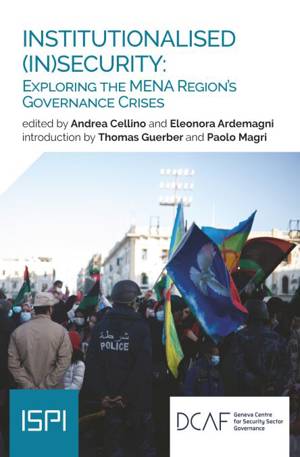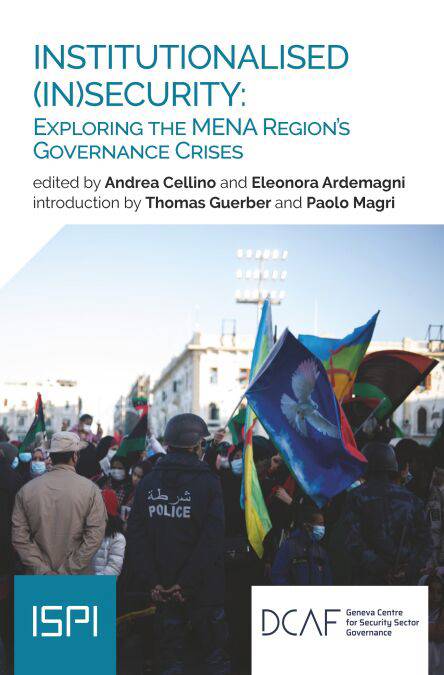
- Afhalen na 1 uur in een winkel met voorraad
- Gratis thuislevering in België vanaf € 30
- Ruim aanbod met 7 miljoen producten
- Afhalen na 1 uur in een winkel met voorraad
- Gratis thuislevering in België vanaf € 30
- Ruim aanbod met 7 miljoen producten
Zoeken
Institutionalised (In)security E-BOOK
Exploring The Mena Region's Governance Crises
Andrea Cellino, Eleonora Ardemagni
E-book | Engels
€ 6,99
+ 6 punten
Omschrijving
After a decade of popular uprisings and civil wars, the Middle East and North Africa (MENA) region experiences a deep governance crisis. The transformation, weakening or even the collapse of state institutions has changed the security framework, with direct implications for the safety and security of civilian populations across the region. Security Sector Governance and Reform (SSG/R) has to cope with hybridity and institutional fatigue.
This report explores the MENA region's governance crises, providing case studies on Libya, Iraq, Tunisia, and Yemen. How can we effectively bring about meaningful SSG/R in hybrid security orders? In which way is "institutionalised insecurity" challenging traditional patterns of governance in vulnerable settings?
This report explores the MENA region's governance crises, providing case studies on Libya, Iraq, Tunisia, and Yemen. How can we effectively bring about meaningful SSG/R in hybrid security orders? In which way is "institutionalised insecurity" challenging traditional patterns of governance in vulnerable settings?
Specificaties
Betrokkenen
- Auteur(s):
- Uitgeverij:
Inhoud
- Aantal bladzijden:
- 91
- Taal:
- Engels
Eigenschappen
- Productcode (EAN):
- 9788855265997
- Verschijningsdatum:
- 13/01/2022
- Uitvoering:
- E-book
- Beveiligd met:
- Digital watermarking
- Formaat:
- ePub

Alleen bij Standaard Boekhandel
+ 6 punten op je klantenkaart van Standaard Boekhandel
Beoordelingen
We publiceren alleen reviews die voldoen aan de voorwaarden voor reviews. Bekijk onze voorwaarden voor reviews.











